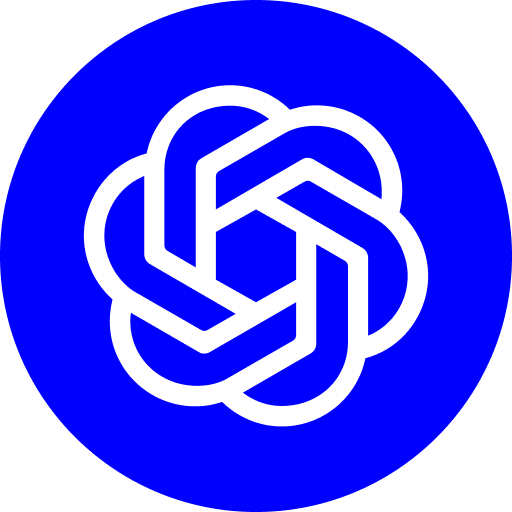
Playground OpenAI
Playground is an online interactive tool provided by OpenAI for testing and exploring the capabilities of its language models (such as GPT-3.5, GPT-4, GPT-4o). It is particularly suitable for developers, content creators, product managers, and anyone who wishes to interact with AI models without writing code.
What is OpenAI Playground?
OpenAI Playground is a graphical interface that allows users to directly input prompts to engage in conversations or task testing with GPT models. Essentially, it is a 'test bench' where users can quickly adjust parameters, experiment with different model settings, and view the AI's output effects in real time, without the need to set up a local environment or write code.
Usage address: https://platform.openai.com/playground
What can Playground do?
🎯 Quick Prompt Testing (Prompt Engineering)
- Try different prompts in an input box to see how the model's responses vary.
- Used for debugging prompt effects and optimizing generated content.
� Choose Different Models
- Compare different models such as GPT-3.5, GPT-4, GPT-4o.
- Supports switching between 'chat' mode and 'text completion' mode.
⚙️ Visual Adjustment of Model Parameters
- Temperature: Controls the randomness of the output.
- Max Tokens: Limits the number of words generated.
- Top P, Frequency Penalty, Presence Penalty, etc.: Used for fine-tuning generation behavior.
📂 Save and Share
- Supports saving sessions or prompt settings for future use.
- Prompts and output results can be exported or copied for team sharing and iteration.
Who is Playground suitable for?
- Developers: For testing prompts and parameter settings before writing code.
- Content Creators: For generating copy, scripts, marketing texts, etc.
- Product Managers/Designers: For verifying the feasibility of AI functions and demonstrating examples to the team.
- AI Beginners: No coding foundation is required to experience the powerful capabilities of GPT models.
Frequently Asked Questions (FAQ)
Q: Do I need to register to use Playground?
Yes, you need to register and log in to an OpenAI account to access Playground.
Q: Is there a fee to use Playground?
New users have a free quota. The tokens consumed during use will be deducted from the account quota, equivalent to the billing method of calling the API.
Q: Can the content generated by Playground be exported?
Yes. You can copy the output, save it as a prompt preset, or even use it for API integration.
Q: Can Playground connect to the API?
It cannot directly connect to the API, but you can debug the prompt here and then copy it to your code or openai-python SDK for use.
Related Sites
Discover more sites in the same category
AutoGLM 沉思
Auto GLM Meditation launched by Zhipu AI is the first desktop agent program that combines GUI operation with meditation ability. It realizes in-depth thinking and real-time execution through the self-developed base models GLM-4-AIR-0414 and GLM-Z1-Rumination. This tool can independently complete the complete workflow of search/analysis/verification/summary in the browser. It supports complex task processing such as the production of niche travel guides and the generation of professional research reports. It has the characteristics of dynamic tool invocation and self-evolving reinforcement learning and is completely free. Currently, it is in the Beta testing stage.
ChatDLM
Chat DLM is different from autoregression. It is a language model based on Diffusion (diffusion), with a MoE architecture that takes into account both speed and quality.
Claude 3.7 Sonnet
**Claude 3.7 Sonnet** is Anthropic’s smartest and most transparent AI model to date. With hybrid reasoning, developer-oriented features, and agent-like capabilities, it marks a major evolution in general-purpose AI. Whether you're writing code, analyzing data, or solving tough problems, Claude 3.7 offers both speed and thoughtful depth.
Claude 4
Claude 4 is a suite of advanced AI models by Anthropic, including Claude Opus 4 and Claude Sonnet 4. These models are a significant leap forward, excelling in coding, complex reasoning, and agent workflows.
DeepSeek
DeepSeek, founded in 2023, is dedicated to researching the world's leading underlying models and technologies of general artificial intelligence and challenging the cutting-edge challenges of artificial intelligence. Based on self-developed training frameworks, self-built intelligent computing clusters, and tens of thousands of computing cards and other resources, the DeepSeek team has released and open-sourced multiple large models with hundreds of billions of parameters in just half a year, such as the DeepSeek-LLM general large language model and the DeepSeek-Coder code large model. And in January 2024, it was the first to open source the first domestic MoE large model (DeepSeek-MoE). The generalization effects of each major model outside the public evaluation list and real samples have all performed outstandingly, surpassing models of the same level. Talk to DeepSeek AI and easily access the API.
Claude 3.5 Sonnet
Claude.ai offers efficient AI writing and conversational services, supporting multiple languages, automatic text generation, and polishing to enhance content creation efficiency. Experience the convenience of an intelligent assistant now.
Leave a Comment
Share your thoughts about this page. All fields marked with * are required.
